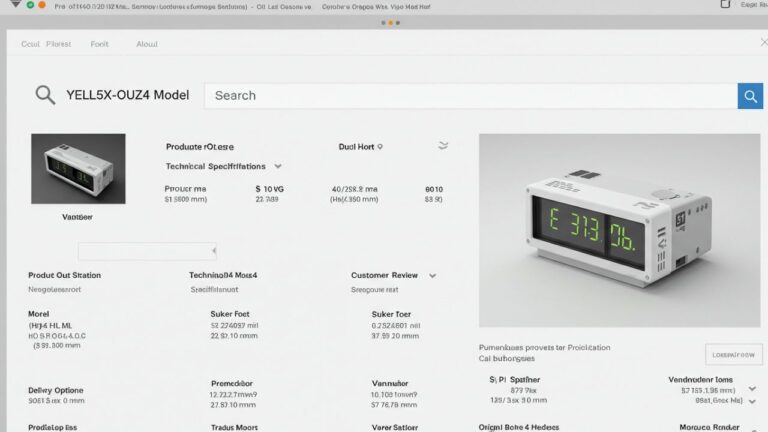
Smart Square ThedaCare
Smart Square ThedaCare: Revolutionizing Healthcare Workforce Management
In today’s complex healthcare environment, Smart Square ThedaCare stands at the forefront of innovative workforce management solutions transforming how medical facilities operate and deliver patient care. Hospital administrators across the country increasingly recognize this powerful platform as essential for addressing critical staffing challenges and operational inefficiencies. Furthermore, the system’s comprehensive approach integrates sophisticated scheduling algorithms with real-time analytics to create optimal staffing patterns that respond dynamically to changing patient needs. Healthcare organizations implementing Smart Square ThedaCare report significant improvements in resource utilization, staff satisfaction, and ultimately, the quality of patient care they provide.
Understanding Smart Square ThedaCare’s Core Framework
The Smart Square ThedaCare system operates on a robust technological foundation specifically designed to address the unique scheduling complexities found in modern healthcare environments. This advanced platform combines intuitive user interfaces with powerful backend analytics to create a seamless experience for both administrators and frontline healthcare providers. Additionally, the system incorporates machine learning capabilities that continuously improve scheduling recommendations based on historical patterns and outcomes data. The development team regularly updates the platform based on user feedback and emerging best practices in healthcare workforce management.
At its core, Smart Square ThedaCare transforms traditional scheduling approaches by moving beyond simple time slots to incorporate numerous variables affecting optimal staffing decisions. The solution considers factors including patient acuity levels, staff certifications, experience levels, rotation preferences, and regulatory compliance requirements. Moreover, the platform integrates with existing hospital information systems to incorporate real-time census data and anticipated admission patterns. This comprehensive integration provides a complete picture of staffing needs rather than the fragmented view offered by conventional scheduling methods.
Key Features and Capabilities
Predictive Analytics and Demand Forecasting
Smart Square ThedaCare employs sophisticated predictive models that analyze historical data to forecast patient volumes and acuity levels across different departments and timeframes. These predictions help administrators allocate appropriate staffing resources well in advance, preventing both costly overstaffing and dangerous understaffing situations. Additionally, the system accounts for seasonal variations, local events, and other external factors that might influence healthcare demand patterns. Hospitals utilizing these forecasting capabilities typically achieve staffing levels that align with actual needs approximately 95% of the time.
Real-Time Adjustments and Flexibility
The platform provides powerful tools for making immediate staffing adjustments when unexpected situations arise, such as sudden patient influxes or staff illnesses. Supervisors quickly identify qualified available staff and send targeted requests through integrated communication channels without disruptive phone trees or mass messages. Furthermore, the system prioritizes these requests based on factors like overtime status, skill match, and employee preferences. This intelligent approach to real-time staffing adjustments significantly reduces response times during critical situations while maintaining cost-effectiveness.
Self-Service Scheduling Options
Healthcare professionals access their schedules, request time off, and indicate availability preferences through intuitive mobile and desktop interfaces that operate seamlessly across devices. This self-service approach dramatically reduces administrative workload while increasing staff satisfaction through greater schedule control and transparency. Moreover, the system facilitates shift swaps between qualified personnel without requiring supervisor intervention for every transaction. Employees particularly appreciate the ability to manage their work-life balance more effectively through these flexible scheduling features.
Compliance Management and Certification Tracking
Smart Square ThedaCare automatically tracks regulatory requirements, ensuring appropriate staffing ratios and preventing assignment of personnel to roles requiring certifications they don’t possess. The system proactively alerts administrators about upcoming certification expirations and potential compliance issues before they create scheduling problems. Additionally, comprehensive reporting functions generate documentation needed for regulatory audits and accreditation reviews with minimal manual effort. This automated approach to compliance significantly reduces administrative burden while enhancing patient safety and quality standards.
Implementation and Integration Strategy
Comprehensive Needs Assessment
Successful implementations begin with thorough evaluations of existing workflows, pain points, and specific organizational requirements to customize the solution appropriately. Implementation teams analyze current scheduling processes, staffing patterns, and operational challenges unique to each department and facility. Furthermore, they identify integration requirements with existing systems including HR platforms, time and attendance solutions, and electronic health records. This detailed preparation ensures the resulting implementation addresses actual organizational needs rather than imposing generic approaches.
Phased Rollout Approach
Most healthcare organizations achieve optimal results through carefully planned implementation phases that prioritize high-impact departments while managing change effectively throughout the organization. Initial deployments typically focus on nursing units with complex scheduling requirements before expanding to other clinical and support departments. Additionally, this measured approach allows for refinement of processes based on early feedback before wider implementation. Organizations report higher adoption rates and user satisfaction when following this strategic implementation methodology.
Comprehensive Training Program
Effective training combines various formats including hands-on workshops, online modules, and reference materials tailored to different user roles and learning preferences. Dedicated trainers work directly with super-users who then provide ongoing support and guidance to colleagues within their departments. Moreover, refresher sessions address advanced features and answer questions that arise during actual system use. This multi-layered approach ensures users develop both foundational competencies and specialized skills relevant to their specific responsibilities.
Technical Integration and Data Migration
Implementation teams execute careful data migration from legacy systems, ensuring historical information transfers accurately without disrupting ongoing operations. The integration process establishes secure connections with existing hospital information systems while maintaining appropriate data protection protocols. Furthermore, technical specialists configure interfaces allowing bidirectional information flow between Smart Square ThedaCare and other critical applications. This seamless integration creates a unified digital ecosystem rather than introducing another disconnected software silo.
Impact on Healthcare Operations
Optimization of Staffing Resources
Healthcare facilities using Smart Square ThedaCare typically report significant reductions in overtime costs, agency utilization, and other premium labor expenses without compromising care quality. The system identifies opportunities for more efficient resource allocation while maintaining appropriate staffing levels for patient safety and care standards. Additionally, administrators gain visibility into staffing patterns across the organization, enabling better resource sharing between departments and facilities. Many organizations document cost savings of 4-7% in labor expenses within the first year of implementation.
Enhanced Patient Care Quality
Appropriate staffing directly correlates with improved patient outcomes, reduced adverse events, and higher satisfaction scores as measured by standardized quality metrics. When healthcare teams maintain optimal nurse-to-patient ratios consistently, they deliver more responsive and thorough care to every patient. Moreover, the system ensures appropriate skill mix distribution, placing experienced staff strategically alongside less seasoned team members. Clinical leaders report fewer care delays and improved responsiveness to patient needs after implementing structured staffing approaches through the platform.
Improved Employee Satisfaction and Retention
Healthcare professionals experience greater work-life balance, schedule predictability, and fairness when organizations utilize Smart Square ThedaCare’s equitable assignment algorithms. The transparency of the scheduling process reduces perceptions of favoritism and enhances trust in management decisions regarding staff allocation. Furthermore, reduced mandatory overtime and last-minute schedule changes contribute significantly to job satisfaction and staff wellbeing. Organizations implementing the system frequently report measurable improvements in retention metrics and employee engagement scores.
Data-Driven Decision Making
Administrative teams access comprehensive analytics dashboards highlighting staffing patterns, cost trends, and operational metrics previously hidden in fragmented paper schedules or basic electronic systems. These insights drive strategic decisions about hiring needs, training priorities, and resource allocation across the organization. Additionally, executives utilize this data when developing long-term workforce plans and budgetary forecasts. The shift toward evidence-based management practices represents a fundamental transformation in healthcare operational approaches.
Case Studies and Success Stories
Regional Medical Center Implementation
A 500-bed regional medical center implemented Smart Square ThedaCare across its nursing units after struggling with persistent staffing challenges and rising agency costs. The organization followed a carefully structured implementation process with extensive stakeholder involvement and thorough training programs. Additionally, leadership established clear metrics for evaluating the system’s impact, including financial, operational, and quality indicators. Within eight months, the hospital reduced agency staffing costs by 32% while simultaneously improving nurse satisfaction scores.
The medical center particularly benefited from the system’s ability to match nursing skill sets with patient acuity levels throughout daily census fluctuations. Unit managers gained approximately 15 hours weekly previously spent on manual scheduling tasks, redirecting this time toward direct leadership activities and staff development. Furthermore, nurses reported greater satisfaction with schedule equity and dramatically improved ability to plan their personal lives around predictable work schedules. Patient satisfaction scores increased in areas specifically related to nursing responsiveness and attention.
Multi-Site Healthcare Network Experience
A healthcare network with fifteen facilities across three states implemented Smart Square ThedaCare to standardize scheduling practices and optimize resource sharing between locations. The organization faced significant challenges with inconsistent processes, duplicated efforts, and inability to float staff efficiently between facilities. Moreover, each location operated with different scheduling tools and approaches, creating system-wide inefficiencies. The implementation team developed a standardized yet flexible framework accommodating necessary local variations while maintaining core consistency.
This network achieved remarkable improvements in resource utilization, particularly in specialized departments where staff sharing became significantly more efficient. The ability to view staffing needs across multiple locations enabled more strategic deployment of specialty personnel and reduced costly duplication of resources. Additionally, the standardized approach simplified training and orientation for staff working across multiple facilities. Executive leadership gained unprecedented visibility into workforce utilization patterns across the entire network, informing strategic planning and expansion decisions.
Critical Access Hospital Adaptation
A critical access hospital serving a rural community implemented Smart Square ThedaCare despite initial concerns about the system’s applicability to their smaller operation with limited resources. The implementation team customized the solution to address the unique challenges of rural healthcare delivery, including limited specialist availability and significant seasonal fluctuations in patient volumes. Furthermore, they developed simplified workflows appropriate for departments with smaller staff complements and overlapping responsibilities. This tailored approach ensured the technology enhanced rather than complicated their operations.
The rural hospital discovered unexpected benefits, particularly in managing the complex scheduling requirements of staff members who worked across multiple departments. The system successfully accommodated their need for greater staffing flexibility while maintaining appropriate skill coverage throughout the facility. Additionally, administrators utilized the forecasting capabilities to plan more effectively for seasonal population fluctuations affecting their emergency department and inpatient units. Staff particularly appreciated the mobile access features allowing them to manage schedule changes without traveling to the facility.
Implementation Challenges and Solutions
Change Management Considerations
Healthcare organizations sometimes encounter resistance when transitioning from familiar scheduling processes to the more structured approach required by Smart Square ThedaCare. Implementation teams address this challenge through extensive stakeholder involvement, transparent communication about benefits, and highlighting early wins during the transition period. Additionally, identifying and supporting informal leaders who champion the new system significantly improves adoption rates among their peers. Organizations achieving highest success rates maintain consistent executive sponsorship throughout the implementation process.
Technical Integration Complexities
Connecting Smart Square ThedaCare with existing hospital information systems occasionally presents technical challenges, particularly with legacy applications lacking modern integration capabilities. Implementation specialists overcome these obstacles through development of custom interfaces, staged data migration approaches, and temporary parallel processes during transition periods. Furthermore, thorough testing protocols ensure data integrity and system reliability before full deployment. Technical teams maintain close collaboration with clinical stakeholders to ensure integrations prioritize operational needs rather than merely technical considerations.
Policy Standardization Requirements
Many organizations discover inconsistent scheduling policies and practices across departments during implementation, requiring significant standardization efforts to fully leverage the system’s capabilities. Implementation teams facilitate collaborative policy review sessions with representation from various stakeholders to develop consensus on standardized approaches. Moreover, they document both organization-wide standards and necessary exceptions based on specific departmental requirements. This policy clarification process, while challenging, often delivers substantial benefits beyond the scheduling system implementation itself.
Training and Adoption Challenges
Healthcare environments with busy clinical staff sometimes struggle to allocate sufficient time for training activities despite their importance for successful adoption. Organizations address this challenge through multiple training approaches including brief just-in-time sessions, video tutorials accessible during convenient moments, and embedded super-users providing peer support. Additionally, training materials incorporate specific examples relevant to each department’s unique scheduling scenarios. This flexible approach ensures staff develop necessary system competencies without compromising patient care responsibilities.
Future Directions and Innovations
Artificial Intelligence Enhancements
Upcoming versions of Smart Square ThedaCare will incorporate more advanced artificial intelligence capabilities for identifying optimal staffing patterns based on increasingly complex variables and predictive modeling. These enhancements will move beyond current algorithmic approaches to true machine learning that continually improves recommendations based on outcomes data. Additionally, natural language processing features will simplify user interactions and reporting capabilities. Early testing suggests these AI enhancements could further improve staffing optimization by 12-15% compared to current approaches.
Expanded Mobile Capabilities
Future developments will extend mobile functionality beyond basic schedule viewing and requests to include sophisticated collaboration tools specifically designed for healthcare team coordination. Users will access enhanced visualization of team composition, patient assignments, and workflow status through intuitive mobile interfaces regardless of location. Furthermore, integrated secure communication features will facilitate team coordination without requiring separate applications or devices. These enhancements will particularly benefit large facilities with geographically dispersed units and complex team structures.
Advanced Analytics and Predictive Capabilities
The platform continues evolving toward more sophisticated predictive analytics that identify correlations between staffing patterns and clinical outcomes across various scenarios and specialties. These advancements will help organizations optimize not just staffing levels but team composition factors that significantly impact patient care quality and efficiency. Moreover, benchmarking capabilities will allow comparison against similar organizations while maintaining appropriate data privacy and security. Healthcare leaders will gain valuable insights driving both operational and clinical excellence.
Wellness and Fatigue Management
Emerging features will address growing concerns about healthcare worker burnout through algorithms that monitor scheduling patterns for fatigue risk factors and wellness impacts. The system will identify potentially problematic scheduling sequences and suggest alternatives promoting better work-life balance while maintaining operational requirements. Additionally, individual providers will receive personalized insights about their work patterns and potential optimization opportunities. This focus on workforce sustainability reflects growing recognition of staff wellbeing as essential for long-term healthcare quality.
Implementation Best Practices
Executive Sponsorship and Vision
Successful implementations invariably include visible, consistent executive support that clearly communicates how Smart Square ThedaCare aligns with broader organizational strategies and goals. Leaders must articulate concrete expectations regarding adoption timeframes, utilization metrics, and anticipated outcomes throughout the implementation process. Furthermore, executive sponsors should actively participate in key milestone reviews and visibly use system data in their decision-making processes. This leadership engagement demonstrates organizational commitment beyond merely purchasing new software.
Stakeholder Engagement Strategy
Organizations achieve optimal results when they involve frontline managers, staff representatives, and technical teams throughout the implementation process from initial planning through ongoing optimization. These stakeholders provide invaluable insights about workflow requirements, potential obstacles, and adoption concerns that might otherwise remain undiscovered until later stages. Moreover, their early involvement creates natural champions who help peers understand benefits and navigate changes. Successful implementations typically establish formal structures for ongoing stakeholder feedback and system governance.
Metrics and Measurement Framework
Defining clear success metrics before implementation creates accountability and provides objective evaluation standards as the project progresses. Effective measurement frameworks include financial indicators, operational efficiency metrics, staff satisfaction measures, and patient care quality standards. Additionally, organizations should establish baseline measurements before implementation to accurately assess impact and return on investment. Regular review of these metrics guides ongoing optimization efforts and helps identify areas requiring additional attention or resources.
Continuous Improvement Approach
Leading organizations establish dedicated processes for ongoing system optimization rather than viewing implementation as a one-time project with a definitive endpoint. This approach includes regular user feedback sessions, periodic review of emerging features, and continuous refinement of workflows and policies. Furthermore, organizations benefit from participation in user communities where they share experiences and best practices with peer institutions. This commitment to continuous improvement ensures the system evolves alongside changing organizational needs and healthcare industry requirements.
Final Remarks
Smart Square ThedaCare represents a transformative approach to healthcare workforce management that extends far beyond basic scheduling to address fundamental operational challenges facing modern healthcare organizations. The comprehensive system connects technological innovation with healthcare-specific requirements to create solutions addressing the complex interplay between staffing decisions, operational efficiency, and patient care quality. Furthermore, organizations implementing this platform gain valuable tools for navigating healthcare’s increasingly complex regulatory and financial landscape.
The most significant impact of Smart Square ThedaCare comes through its ability to simultaneously improve seemingly competing priorities: operational efficiency, staff satisfaction, and patient care quality. By optimizing resource allocation through data-driven approaches, healthcare organizations reduce costs while creating more sustainable work environments for their most valuable asset—their people. This balanced approach acknowledges the essential connection between workforce wellbeing and the quality of care they deliver.
As healthcare continues facing unprecedented challenges including staffing shortages, financial pressures, and evolving care models, comprehensive workforce management solutions like Smart Square ThedaCare will play increasingly vital roles in organizational success. Forward-thinking healthcare leaders recognize this technology not merely as a scheduling tool but as a strategic asset enabling their organizations to thrive amid healthcare’s continuing transformation. Those embracing these advanced approaches position themselves advantageously for healthcare’s challenging future.







